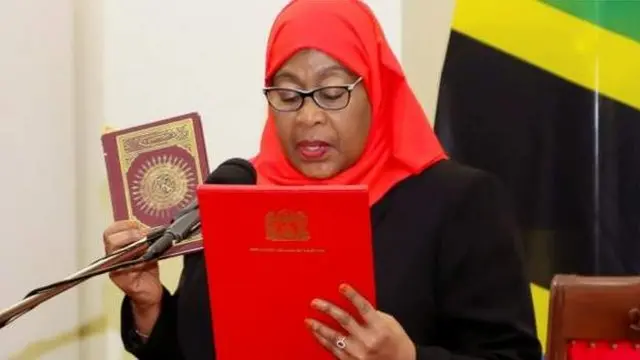Tanzania’s President Samia Suluhu Hassan has appointed her daughter and son-in-law to key government positions, raising discussions on family influence in politics. In a televised address from Chamwino State House, Dodoma, President Samia announced her latest Cabinet, including 27 ministers and 29 deputy ministers.
Her daughter, Wanu Hafidh Ameir, 43, was named Deputy Minister of Education. Wanu, who represents Makunduchi Constituency in Zanzibar, now joins the national Cabinet in a role overseeing education initiatives. Wanu’s husband, Mohamed Mchengerwa, 46, serving as Member of Parliament for Rufiji Constituency, was appointed Minister of Health.
These appointments come amid broader Cabinet reshuffles that saw seven senior officials from the previous administration lose their posts. The move has sparked debate over political nepotism, a trend observed in other African nations.
For instance, in Uganda, President Yoweri Museveni has appointed family members including First Lady Janet Museveni as Education Minister, their daughter Natasha in State House, and son General Muhoozi Kainerugaba as head of defense forces. Similarly, in South Sudan, President Salva Kiir appointed his daughter, Adut Salva Kiir, as Senior Presidential Envoy for Special Programmes despite her lack of prior government experience.
Tanzania is not alone in this trend. Other countries, including Equatorial Guinea and even the United States under former President Donald Trump, have seen close family members appointed to influential roles.
The new Tanzanian Cabinet also includes Ridhwani Kikwete, son of former President Jakaya Kikwete, as Minister for Public Service Management and Good Governance. The appointments reflect a continued pattern where family ties and political loyalty shape leadership structures.
The Cabinet is scheduled to be sworn in on Tuesday, marking a significant moment in President Samia’s administration as she strengthens her political base while balancing public scrutiny over familial appointments.

